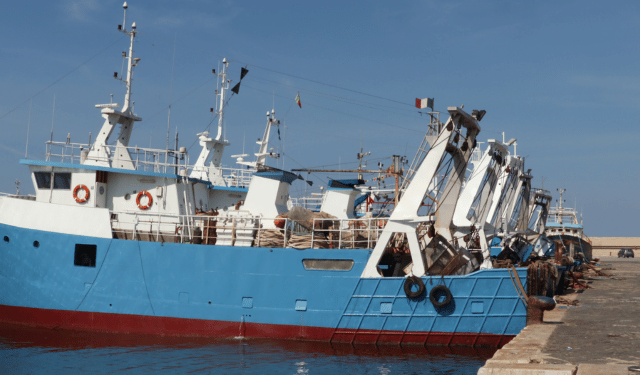Fishing between Italy and Libya. A controversial past and a desirable future of cooperation – Libyan waters have always represented an important resource for Italian and Sicilian fishermen in particular, but the history of relations between Italy and Libya in the fishing sector has been marked by tensions and conflicts for several decades.
From Italian colonisation to Libyan independence, relations have been complex, making it difficult to fully legitimise Italy’s historical rights in Libyan waters. Fishing rights issues have become a point of contention, so much so that there is now a complete ban on access even in international waters claimed by Libya as falling within their EEZ.
Despite this tumultuous past and a still unresolved present, Italy would still have the opportunity to reposition its presence in Libyan waters as a matter of historical cooperation. The tradition of joint fishing between the two countries can be emphasised as a link that deserves to be preserved and enhanced. In a context of growing economic and environmental crisis, cooperation in the fisheries sector could be mutually beneficial, fostering not only the sustainability of marine resources but also the economic development of coastal communities in both countries.
In this context, the role of the European Union (EU) is crucial. The EU could act as a mediator between Italy and Libya, promoting a multilateral dialogue that takes into account the interests of all parties involved. Furthermore, it could support the creation of a clear and shared legal framework to regulate fishing activities, in line with the sustainability principles promoted by the Common Fisheries Policy (CFP)
Similarly, the renewed diplomatic openings during Prime Minister Giorgia Meloni’s recent visit to Libya bode well for the immediate future. With the adoption of the Mattei Plan, Meloni has put forward strategic proposals as a model for economic and political cooperation, among which fishing occupies a prominent role.
Economic areas, such as Zuwara Ras Jedir, located south-west of the capital Tripoli, having overcome the conflict with the Tunisian state over the management of the crossing, now represent an interesting economic area for fishing. Local government authorities are reportedly ready to open an important dialogue regarding the sustainable exploitation of marine resources.
Although Italy’s historical right to Libyan waters cannot be fully asserted due to past events, the combination of a bilateral approach, EU support and respect for UNCLOS principles offers a concrete opportunity to build a future of cooperation. Revitalising the tradition of cooperation between the two countries is the essential step to ensure a balance between law, sustainability and economic development.
Fishing between Italy and Libya. A controversial past and a desirable future of cooperation







